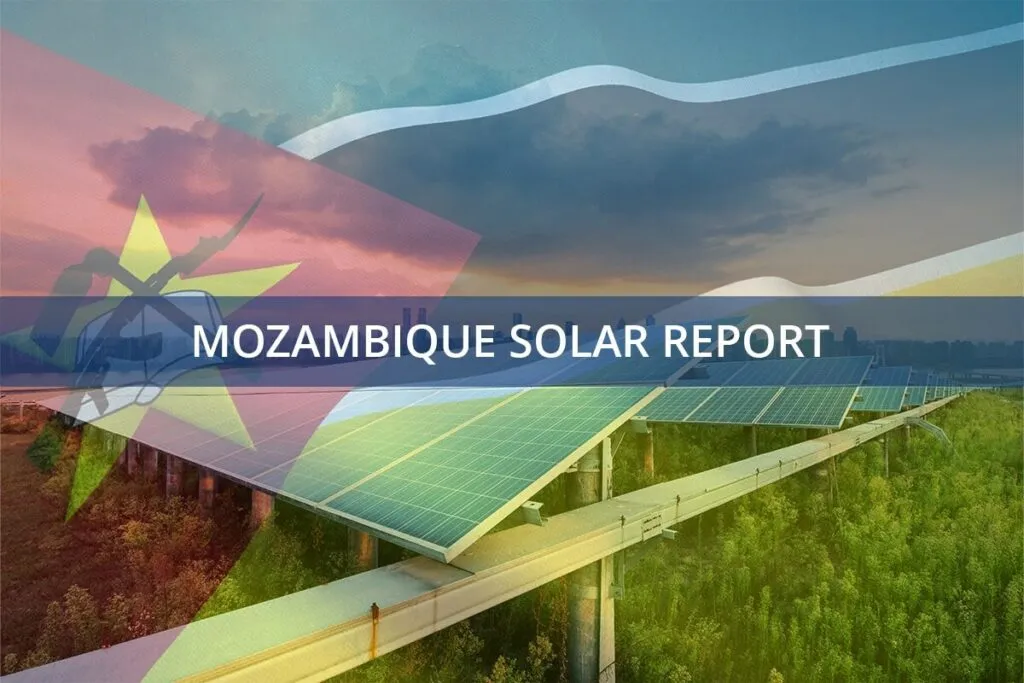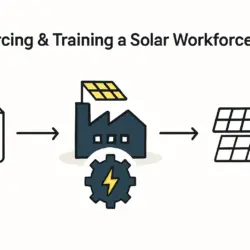Mozambique is taking a significant step forward in renewable energy with its first floating solar power project. Set to be built on the Chicamba reservoir near the city of Chimoio in Manica province, the innovative project will complement the existing hydroelectric dam. It is expected to generate 100 megawatts (MW) of electricity and will be developed in two 50 MW phases.
Floating Solar Power Plant in Mozambique
State-owned utility Electricidade de Moçambique (EDM) and the French renewable energy company Hydroland have officially announced a partnership to construct Mozambique’s first floating solar power plant. This pioneering project will be strategically located on the Chicamba reservoir, integrating solar generation with the existing hydroelectric infrastructure. The total planned capacity is 100 MW, to be rolled out in two equal phases of 50 MW each.
The landmark agreement was formalized in Maputo during a signing ceremony led by EDM chairman, Marcelino Gildo Alberto, and Hydroland chairman, Thierry Carabin. The event’s significance was underscored by the presence of Mozambique’s Minister of Mineral Resources and Energy, Carlos Zacarias.
In his address, Minister Zacarias emphasized the project’s critical role in expanding Mozambique’s renewable energy capacity. He noted that the floating solar power plant will make a substantial contribution to reducing greenhouse gas emissions and advancing sustainable development goals within the country.
“This project is a major step forward for Mozambique in its transition towards renewable energy,” Minister Zacarias stated. “It will help to diversify our energy mix and reduce our dependence on fossil fuels.”
This floating solar initiative is a key component of EDM’s broader strategy to grow its renewable energy portfolio. The utility has already made significant investments in solar and wind projects, and this new plant is set to further solidify its position as a regional leader in clean energy.
Floating Solar Power Plant Benefits for Mozambique
The Chicamba floating solar power plant is poised to deliver a significant positive impact on Mozambique’s energy sector. By generating clean electricity, it will help decrease the country’s reliance on imported fossil fuels, which in turn can improve energy security and stabilize energy costs.
A key advantage of floating solar technology is its efficient use of resources. By siting the panels on the reservoir’s surface, the project avoids using valuable land that could otherwise be dedicated to agriculture or conservation. Furthermore, the water provides a natural cooling effect for the panels, which can enhance their electricity generation efficiency compared to land-based installations. The project also creates a hybrid energy system, where solar provides power during sunny daytime hours, allowing the hydroelectric dam to conserve water for use during peak evening demand or on cloudy days.
Additionally, the project will generate jobs during the construction and operation phases, contributing to local economic development. Understanding the basics of solar panel manufacturing highlights the potential for developing local skills and supply chains. By replacing fossil fuel-based generation, the plant will reduce greenhouse gas emissions and support global efforts to combat climate change.
EDM and Hydroland have commenced preparatory work, including site assessments and environmental impact studies. Construction on the first 50 MW phase is slated to begin in early 2025, with completion anticipated in 2026. The second phase is scheduled for completion by 2027.
Mozambique’s Commitment to Renewable Energy and Floating Solar
The floating solar project at Chicamba is a significant milestone in Mozambique’s clean energy journey, demonstrating the government’s firm commitment to sustainable development. This initiative is part of the nation’s comprehensive Energy Transition Strategy, which, according to a detailed Mozambique solar panel manufacturing report, aims to install at least 1,000 MW of solar capacity by 2030.
This project is not an isolated effort. It joins a growing list of renewable energy investments across the country, including a recently approved $110M 50 MW Mozambique solar plant in the Chibuto district and plans for a new $110.6M solar project in Moamba.
This momentum is reflective of a continent-wide trend. Projections for Africa solar growth show a significant surge in renewable energy adoption. As countries across the continent seek to meet rising energy demands while addressing climate change, innovative projects like Mozambique’s floating solar plant serve as a powerful model. Regional neighbors are also making strides, such as the recently activated 100MW solar tower in South Africa. Mozambique’s experience will offer valuable lessons for future developments, solidifying its role as a key player in Africa’s renewable energy landscape.
If you are interested in learning more about the intricacies of bringing solar projects to life, from initial planning to full-scale production, consider exploring our free e-course on solar panel manufacturing.



